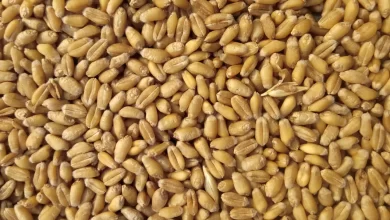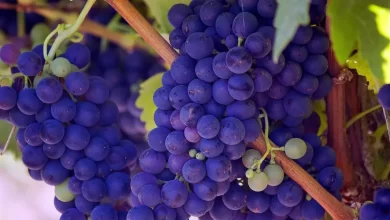Cucumber has been grown for at least 3000 years. It is believed to have originated in India, where a wide range of varieties has been found. The Greeks or Romans most likely brought it to other parts of Europe. Magnesium, potassium, and vitamin K are all found in cucumbers. These three nutrients are essential for the cardiovascular system’s health. Taking magnesium and potassium can help to reduce blood pressure. Cucumber consumption on a daily basis has been shown to lower bad cholesterol and blood sugar levels.
- Cucumber originated in India about 3,000 years ago and was soon cultivated in the South and East of the Himalayas. From India, cucumber was brought to Greece, Italy, and later to China.
- The biggest producer of cucumber in the year 2018 was China, with 75,219,440 metric tonnes of production, which accounted for 75% of the total production of cucumber in the world.
- In 2019, Spain was the biggest exporter of cucumber, with $689,402,000 worth of a sale. Mexico is the second cucumber exporting country in the world.
- The United States is the biggest importer of this vegetable with worth $880 million worth of import in the year 2019.
- There are three main varieties of cucumber—slicing, pickling, and burpless/seedless.
- Cucumbers are 95% water, and the pH of the vegetable is 5.1 to 5.7.
- The longest cucumber measures 107 cm (42.1 in) ever grown is named after Ian Neale of Wales, UK. The world record was registered on 26 September 2011.
- Cucumber is very healthy to have and has a number of health benefits. Some of them are:-
(i) It promoted Hydration
(ii) May aid weight loss
(iii) May lower blood glucose level
(iv) Rich in antioxidants. - Ever wondered why cucumber slices are kept on the eyes. It is kept because Vitamin C present in the cucumber can “wake up skin” and stimulate cell growth. While folic acid stimulates antioxidants that would help your skin fight environmental toxins. The commodity contains a high water level that moisturizes your eyes.
- If you have bad breath, cucumber is the vegetables you want. Cucumber is high in water volume and prevents dry mouth. It also washes away excess unwanted food residue that may be present in the mouth after a meal.
- Cucumbers are warm-season crops that don’t tolerate frost and are usually grown from February or March through July.
- Cucumbers are a vine crop requiring a lot of space. The vines can reach 6 to 8 feet long or maybe more. In large gardens, cucumbers can spread out on the ground.
Nutrition Facts of Cucumber
Here are thenutritional profile of 142g cup of chopped cucumber.
- Water: 137g
- Calories:17
- Protein: 0.8g
- Fat: 0.2 g
- Carbohydrate: 3.1 g, including 2.0 g of sugar
- Fiber: 1.0 g
- Calcium: 19.9 g
- Iron: 0.3 mg
- Magnesium: 17 mg
- Phosphorus: 29.8 mg
- Potassium: 193 mg
- Sodium: 2.8 mg
- vitamin C: 4.5 mg
- Folate: 19.9 mcg
- Beta carotene: 44 mcg
- Lutein + Zeaxanthin: 22.7 mcg
- Vitamin K: 10.2 mcg
References
- Scielo.br(Where does cucumber originated)
- Worldstopexports.com(Spain and mexico the biggest producer of cucumber)
- Wikipedia-Cucumber
- Healthline.com(Why cucumber slices are kept on eyes)
- Today.com(Good for bad breadth)
- Homeguides.sfgate.com(cucumbers are warm season crops)
- Agrilifeextension.tamu.edu(Gardening cucumber)






